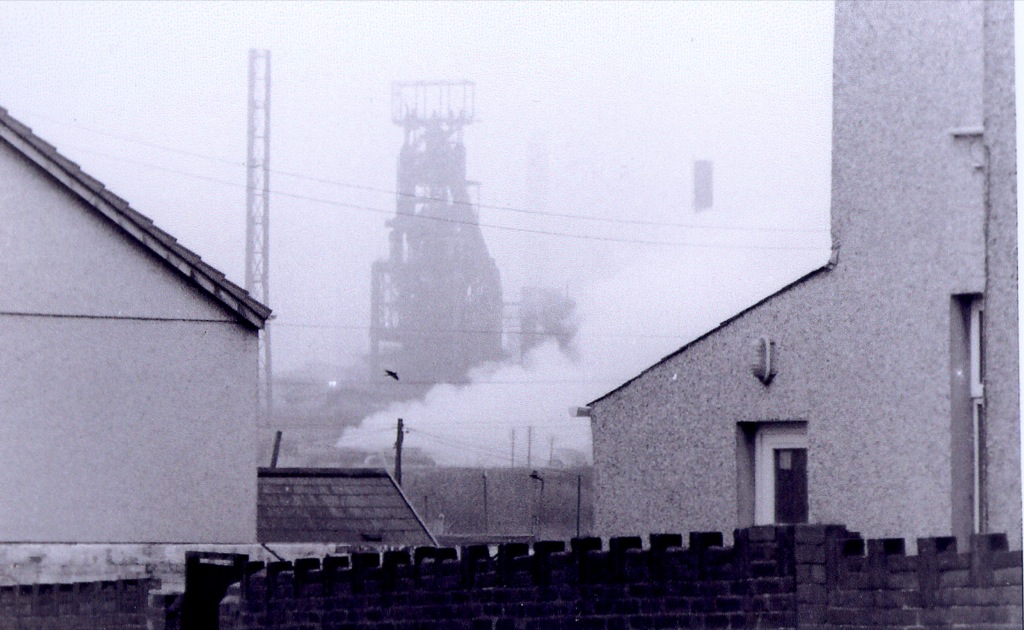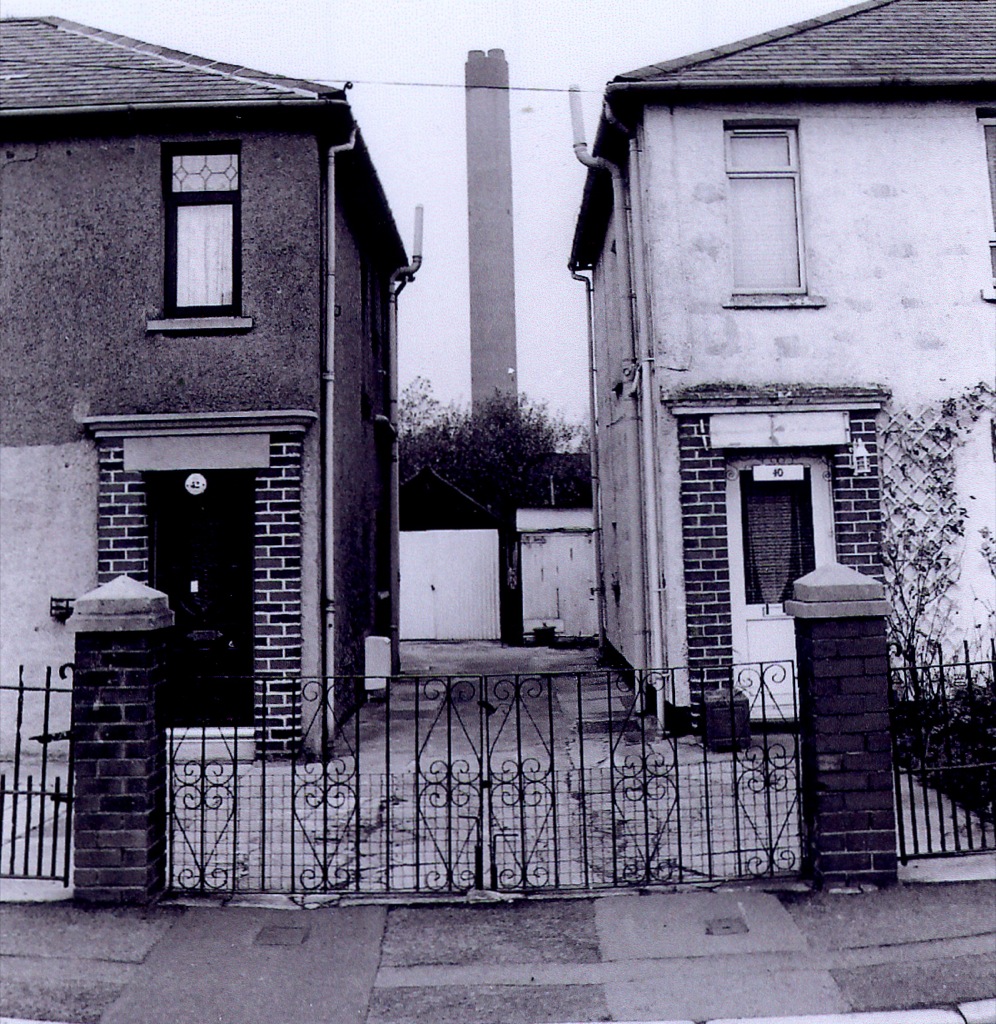Make a Difference
I have often looked at this industrial town as I drove past with some fascination at our ability to build such huge things but also intrigued to know what it was like to live with them as the view from the bedroom window. I took these photos from a housing estate situated on the edge of one of the largest steel works. As I wandered around I noted how aware I was of the major industry going on a hundred metres away. The sight, the smell or the noise served as a constant reminder, both of those industries still active and those which died out many years ago. But so was the knowledge that this is where thousands of people lived and made their lives. A child’s bike, washing on the line and a man walking his dog all indicative of normal everyday life.
The man walking his dog saw me taking the photos and came over. He asked me what I was doing so I told him. ‘It’s an oppressive place to live’ he said. Over the next ten minutes I found out he’d lived there all his life and had worked, like most of the men, in one of the works. That was until he sustained a debilitating injury* in an industrial accident. He’d had to retire due to sickness at age 38 (that’s when he got his dog – a Labrador called Earl) and had lived on benefits ever since.
* personal details altered to maintain anonymity
Apparently this was quite a common occurrence too. I asked if he could have tried any non-manual work but he said he ‘didn’t have the education for office type stuff’ and was ‘far too old’ to do any further training – not that there was any on offer – at least none he could find. He was quite chatty and I got the impression he was glad of the company. He went on to say how his wife had left him a year later and his children only occasionally visited. He was a regular at the local pub where he enjoyed a drink and a smoke ‘most afternoons like’.
As we said goodbye, I started to wonder if anything could have been done which would have changed these years of this man’s life. Apart from perhaps better safety standards at the works I wondered about the role of doctors involved in his care at the time and afterwards. Could they have tried to encourage him more into seeking additional training or pointing him in the direction of some? Surely his health, both mental and physical, would be better had he spent the last 15 years able to work. Maybe they did and he wasn’t interested.., but I think it more likely that they didn’t. Then I started to think about the role of health care professionals in such a community as a whole. The media is always telling us of the high rates in such housing estates of crime, unemployment, teenage pregnancy, drug use etc… the list is a long one. And whilst it is not everyone who is affected by such issues, sadly the percentage is greater than for those who live in the leafy suburbs. Obviously there is an important role for teachers, the police as well as society in general but I also realised there is an important role for the health professional, the doctor. Educating patients, encouraging them, liaising with other organisations as well as involving the patient fully in their treatment and the options available are all vital in giving them the most important things available – their health and a good quality of life. They can then go on to do whatever they want whether it’s providing for their family by working at the plants, looking after young children at home or studying to go to university, the role of the local doctors is vital in such communities. One day I hope to be lucky enough to provide such a service.
When taking the photographs I must admit I felt glad I didn’t have to live there. After speaking to the man walking his dog I got the feeling that many people who lived there didn’t through their own choice. As this was a council estate many had been placed there by the council. Due to writing this piece, I have thought about how doctors can act to help change and hopefully improve the lives of people who live there. Whilst being a G.P. in such an area might not have as much ‘sex-appeal’ as a top surgeon in a top London hospital, I realized that such a job could be even more rewarding in making a difference to peoples lives. Thus my view of the place changed from ‘I wouldn’t want to live here’ to ‘wouldn’t it be great to make a difference?’.


What a great and optimistic outlook. Not an uncommon reaction in enthused young professionals. How do we harness and maintain this enthusiasm under the pressures of practice in deeply deprived areas and ensure also the continuing health and well being of the health care workers there?
Hi Ben, Excellent photograph. I drive past port Talbot frequently on route to Fishguard and I’m always impressed by the sight of plant pouring out steam, the size of the towers and so on. I always want to leave the car to have a closer look, but as you suggested as an initial thought of living in that sort of area is less than compelling. However, I completely agree with the point you’ve made and that living in deprived area and having the chance to genuinely make a difference to a community would be far more rewarding work than a top London surgeon. As Judy mentioned, the difficulty is maintaining this sort of ambition and I think that through placement schemes like the 1st year, GP rotation in deprived but close knit communities in areas like port talbot or Eston/St Pauls etc in Bristol, we allow students to experience the difference a motivated GP can make to an area.”
This picture also resonated with my personal experiences of driving past Port Talbot on a regular basis on family holidays, and how each time we drove through someone would comment on how desolate it seemed, especially in the early hours of the morning, and more times than not, pouring rain. For me, these pictures emphasise how little it takes for people to make judgements about a person or place, based purely on what we could see from a motorway in half-light we deemed the town an unpleasant placed to live. This can also occur within society with regard to patients suffering from conditions that are not immediately obvious, so the support they need is not forthcoming, as people do not appreciate the situation fully. It also highlights how a skilled clinician needs to be able to see below the surface to the person underneath and appreciate how their illness impacts on their life and the systems of which they are a part. As you mentioned in the accompanying text, the relationship between Doctor and Patient enables an appreciation of what is often a lifestyle far removed from your own, and how you can help to make a difference.
The picture captures the harsh realities and stark contrasts between home and work, but the inevitable overlapping between the two. This is much like the significant differences in many areas of our country, but where doctors have to play just a vital a role, not matter the class or circumstances of the patients they are treating. I think it is always important to remember that being a doctor involves no judgment of those you treat, of thinking beyond just their physical worries, and that your duty is not over when the patient leaves your surgery.